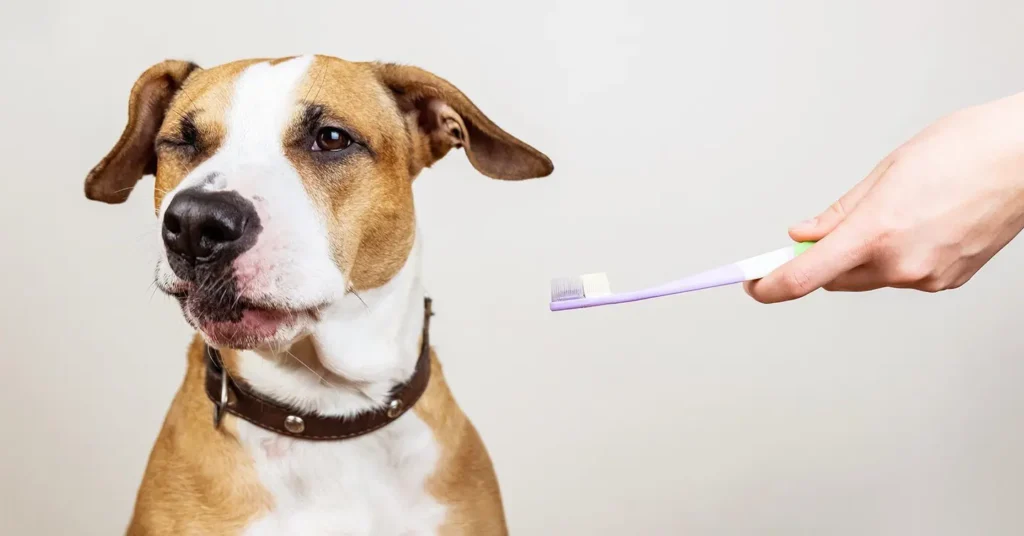Dental health is as crucial in canines as it is in humans, particularly when it comes to our petite pals. This comprehensive guide titled ‘Tiny Teeth, Big Issues: How to Prevent and Care for Dental Problems in Small Dogs’ aims to shed light on the importance of dental health in smaller breeds, a topic often overlooked by many pet owners. 🐶
Throughout the text, we will discuss the unique dental issues that small dogs are predisposed to, and the role of preventive care in mitigating these problems. From tooth decay to periodontal disease, the potential consequences of neglecting dental hygiene can be severe and, in some cases, even life-threatening. We will delve into the different methods of dental care and prevention, offering practical tips for maintaining a clean and healthy mouth for your four-legged friend.

To ensure your furry friend leads a long and healthy life, understanding the importance of dental hygiene is key. Whether you are a new dog owner or a seasoned pet parent, this guide will equip you with the knowledge needed to tackle dental issues effectively. So, let’s take the plunge together into the world of canine oral health, unraveling the mysteries behind those tiny teeth and the big issues they can cause!
Recognizing Early Signs of Dental Problems in Small Dogs
Being vigilant about your small dog’s dental health starts with recognizing the early warning signs of dental issues. Detecting these problems at an early stage can make treatment easier and prevent serious complications. Some signs to watch for include bad breath, which is often the first indicator of dental disease. If your dog’s breath smells unusually foul, it could signify a buildup of bacteria in the mouth.
Other symptoms to be aware of are red or bleeding gums, loose teeth, difficulty chewing, and a noticeable reluctance to eat hard food. Drooling excessively or pawing at the mouth can also suggest that your dog is experiencing dental discomfort. Swelling around the mouth, face, or jaw should not be ignored, as it could indicate an infection requiring immediate veterinary attention. Keeping a close eye on these signs allows for prompt intervention and minimizes the risk of severe dental complications.
The Importance of Professional Dental Cleanings
While regular brushing and at-home care are critical, they cannot completely replace professional dental cleanings performed by a veterinarian. Over time, tartar builds up under the gum line where a toothbrush cannot reach, leading to inflammation and infection. During a professional cleaning, your dog will be placed under anesthesia to allow the veterinarian to thoroughly clean the teeth and gums, removing plaque and tartar buildup.
Professional cleanings also provide an opportunity for the veterinarian to examine the mouth for signs of more serious conditions, such as oral tumors, cysts, or advanced periodontal disease. These procedures are vital for maintaining overall oral health and should be performed at least once a year, or more frequently if recommended by your vet.
Choosing the Right Dental Products for Small Dogs
Selecting the appropriate dental products for your small dog plays an essential role in promoting oral hygiene. Toothbrushes designed specifically for dogs are available in various sizes to accommodate smaller mouths. Finger brushes can also be effective, offering more control when brushing tiny teeth.
Choosing the right toothpaste is equally important. Human toothpaste can be harmful to dogs, so it is critical to use toothpaste formulated for canines. These often come in dog-friendly flavors such as chicken or beef, making the experience more pleasant for your pet. Additionally, dental rinses, gels, and water additives can supplement regular brushing, helping to reduce plaque and freshen breath.
The Role of Diet in Maintaining Dental Health
Diet not only affects your dog’s overall health but also has a direct impact on dental wellness. Crunchy kibble is generally recommended over wet food because its texture helps scrape away plaque as the dog chews. However, some premium dog foods go even further by including specific ingredients that promote oral health, such as enzymes that break down bacteria in the mouth.
Feeding raw bones under veterinary supervision can also help clean a dog’s teeth naturally. However, care must be taken to ensure the bones are appropriate in size and hardness to prevent tooth fractures or gastrointestinal issues. Consulting your veterinarian before introducing any new food or treat to your dog’s diet is always a wise decision.
Dental Toys and Their Benefits
Dental toys can be a fun and effective way to enhance your dog’s oral hygiene routine. These toys are designed to clean teeth, massage gums, and promote healthy chewing behavior. Textured rubber or nylon chew toys are particularly beneficial because they help reduce plaque and tartar buildup.
Interactive toys that encourage prolonged chewing not only help keep teeth clean but also provide mental stimulation and reduce anxiety. When selecting dental toys, it is important to choose those that are appropriately sized and made from safe, non-toxic materials. Rotating toys regularly can also keep your dog interested and engaged.
The Link Between Dental Health and Overall Health
Poor dental health in small dogs is not just confined to the mouth; it can have far-reaching effects on their entire body. Bacteria from periodontal disease can enter the bloodstream and travel to vital organs such as the heart, liver, and kidneys, leading to systemic infections and life-threatening conditions. This condition is known as bacteremia and highlights the critical importance of maintaining good oral hygiene.
Studies have shown that dogs with dental disease have a higher risk of developing heart conditions, particularly endocarditis, an infection of the heart valves. Therefore, investing time and effort into your dog’s dental care is an investment in their overall health and longevity.
How to Establish a Daily Dental Care Routine
Building a consistent dental care routine is crucial for your dog’s oral health. Start by selecting a regular time each day dedicated to brushing your dog’s teeth. Consistency helps your dog become accustomed to the process, making it easier over time.
Introduce the toothbrush and toothpaste gradually, allowing your dog to sniff and taste them before attempting to brush. Begin by gently lifting the lips and brushing in circular motions on the outer surfaces of the teeth. Aim for short sessions initially, gradually increasing the time as your dog becomes more comfortable.
In addition to brushing, offering dental chews and incorporating dental toys can supplement daily care. Always reward your dog with praise or a small treat afterward to reinforce positive behavior and make the experience more enjoyable.
Understanding Breed-Specific Risks
Certain small dog breeds are more prone to dental problems due to their genetic makeup and physical characteristics. Breeds such as Chihuahuas, Yorkshire Terriers, Dachshunds, and Pomeranians often have crowded teeth and narrow jaws, which create an ideal environment for plaque accumulation and gum disease.
Owners of these breeds should be particularly diligent about dental care, scheduling more frequent professional cleanings and maintaining rigorous at-home hygiene practices. Early intervention and preventative care can significantly reduce the risk of serious dental issues in these high-risk breeds.
Home Remedies and Natural Approaches
In addition to conventional methods, some pet owners explore natural approaches to support their dog’s dental health. Coconut oil, for example, has natural antibacterial properties and can be applied to the teeth and gums to help reduce plaque and freshen breath.
Adding parsley to your dog’s food can also aid in combating bad breath due to its natural deodorizing properties. However, it is crucial to consult your veterinarian before trying any home remedies to ensure they are safe and appropriate for your specific dog.
Monitoring Progress and Adjusting Care
Keeping track of your dog’s dental health over time is vital. Maintain a record of professional cleanings, note any changes in behavior or appetite, and regularly inspect your dog’s mouth for signs of trouble.
Adjust your dental care routine as needed based on your observations and your veterinarian’s advice. Some dogs may require more frequent brushing or additional dental products to manage their oral health effectively. Being proactive and responsive to your dog’s needs ensures they continue to enjoy good dental and overall health throughout their life.
How to Care for Dental Problems in Small Dogs
Despite your best efforts, your small dog might still encounter some dental problems. In these instances, it’s crucial to know how to properly care for your furry friend.

Treating Periodontal Disease
Periodontal disease is a serious condition that requires immediate veterinary attention. Your vet may recommend a professional cleaning, and in severe cases, surgery may be necessary. Antibiotics and special dental diets can also be part of the treatment plan.
Addressing Tooth Decay and Broken Teeth
Tooth decay and broken teeth are other common dental issues that require veterinary intervention. Treatment for tooth decay typically involves removing the decayed part of the tooth and filling it. Broken teeth, on the other hand, might need to be extracted, especially if they’re causing your dog pain or have the potential to cause infection.
Supporting Dental Health with Supplements and Dental Chews
Supplements and dental chews can be valuable additions to your small dog’s dental care regimen. They can help maintain oral health and prevent dental problems from arising.
Exploring the Variety of Dental Supplements
When considering dental supplements for small dogs, it is important to understand the range of options available. Some supplements are formulated as powders that can be sprinkled over your dog’s food, while others come in liquid form or as chewable tablets. These products often contain ingredients like coenzyme Q10, which supports gum health, and chlorhexidine, known for its antibacterial properties. Supplements fortified with vitamins C and E are particularly beneficial because they can help reduce inflammation and boost the immune system, making it easier for your dog to fight off infections. Incorporating the right dental supplements into your dog’s daily routine can serve as an additional layer of protection against common dental issues.
Choosing the Best Dental Chews for Small Dogs
Dental chews come in a wide array of shapes, sizes, and flavors, all designed to make oral hygiene a more enjoyable experience for dogs. When selecting dental chews, it is crucial to look for products approved by veterinary dental associations, as these chews have been tested for their effectiveness in reducing plaque and tartar buildup. Size is a critical factor, especially for small dogs. A chew that is too large or too hard can lead to fractured teeth, while one that is too small can pose a choking risk. Ingredients also matter; opt for chews made from natural components without excessive artificial additives or sugars, which could undermine your dog’s overall health.
Creating a Comprehensive Dental Care Checklist
To ensure that no aspect of your small dog’s dental care is overlooked, having a comprehensive checklist can be incredibly helpful. Start by committing to daily tooth brushing using a canine-specific toothbrush and toothpaste. Choose a quality dry dog food that is formulated to promote dental health, and incorporate dental chews and appropriate supplements into your dog’s routine. Schedule regular veterinary check-ups at least once a year, with dental exams included. It is also beneficial to periodically assess your dog’s mouth for any visible changes such as redness, swelling, or signs of discomfort. Being consistent with these practices creates a strong foundation for maintaining excellent dental health.
The Long-Term Benefits of Proactive Dental Care
Investing in your small dog’s dental health yields significant long-term benefits. Proactive dental care can prevent painful conditions like periodontal disease and tooth abscesses, reducing the need for costly veterinary interventions later on. Moreover, maintaining clean teeth and healthy gums contributes to better overall physical health, lowering the risk of heart, liver, and kidney disease. A dog with a healthy mouth is more likely to enjoy eating, playing, and interacting with its human companions, resulting in a happier and more vibrant life. Establishing a solid dental care regimen early in your dog’s life will pay off in the form of fewer health problems and a higher quality of life as they age.
Conclusion
In conclusion, the health and well-being of our small dogs heavily relies on proper dental care. This article has underscored the importance of regular dental check-ups to prevent and care for oral health issues. Early detection and prompt treatment of dental problems can save your little furry friend from pain and discomfort, and protect them from serious health complications. The significance of a well-balanced diet, chew toys and dental treats cannot be overemphasized. Additionally, remember to incorporate at-home oral hygiene practices such as tooth brushing in your pet care routine. The tips provided are not just informative, but are crucial in maintaining the overall health of your small dog. Ensuring your small dog’s teeth are healthy is just as important as ensuring their heart is. After all, a dog’s sparkling smile is a sign of good health. Always consult with your veterinarian for any dental concerns and to provide the best dental care for your small dog. Dental problems in small dogs can indeed be big issues, but with preventative measures and appropriate care, they don’t have to be.



